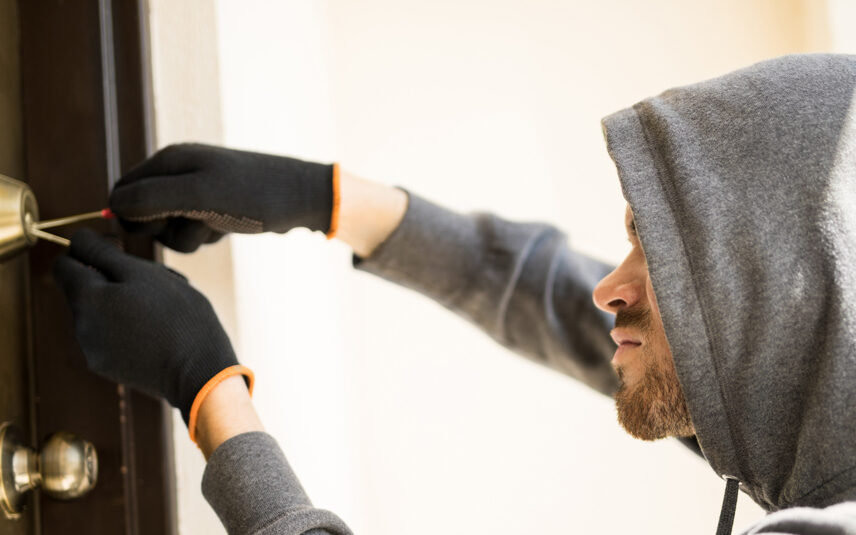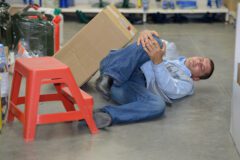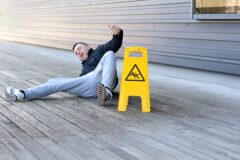Who is Responsible if Someone Breaks into My Gated Community?

Living in a gated community provides a sense of security for residents. However, what happens when that security is violated?
When someone breaks into a gated community, it feels like a direct violation of their security. So, who is to blame? The answer to this question depends on several factors, including the terms of the homeowner’s association (HOA) agreement, the security measures in place, and the circumstances surrounding the break-in.
The Property Owner/HOA
Generally speaking, the responsibility for a break-in in a gated community will fall on the homeowner’s association. This is because the HOA is responsible for maintaining the common areas and providing security measures for the community. The HOA is required to ensure that the gates and other security measures are functioning correctly and that there is adequate lighting in the common areas.
However, if a defect in the security measures caused the break-in, the responsibility may fall on the company that installed and maintained the security system. In this case, the HOA may have a claim against the security company for negligence.
Likewise, if the HOA is aware of a security issue and fails to alert the community, it’s possible to hold them liable, especially in instances of repeated failure to maintain security features. The HOA may also be liable for criminal activity if they are aware of trends in crime in the area and fail to disclose the information to their residents.
Residents
If the break-in was caused by the actions of a resident or guest of a resident, the responsibility might fall on the individual who caused the break-in. For example, if a resident leaves the gate open or gives access to an unauthorized individual, they may be liable for any resulting damages or losses.
Maintenance Company
If a maintenance company fails to adequately fix a gate or alarm, allowing a robber or trespasser onto the property, they could potentially be held liable for negligence, specifically if they failed to alert anyone about the security issue.
Security
If your gated community has an employed security guard either roaming the property or stationed at the entrance, they are directly responsible for allowing any unauthorized guests entry into your community. If a crime happens due to their negligence, they may be liable.
Common Ways Trespassers Enter Gated Communities
Trespassers can break into a gated community in a variety of ways, but there are a few ways that tend to be the most common, including:
Tailgating
Tailgating happens when one person follows another vehicle into an entrance gate. Oftentimes, residents and nonresidents will use this for quicker entrance into a gated community.
While most communities warn residents against this behavior, the reality is that it happens all the time. However, tailgating makes it incredibly difficult to determine who’s at fault for allowing nonresidents into their community. Even if you believe it to be a good-willed neighbor, the person tailgating behind you could be a criminal.
Broken Security Equipment
Similarly, criminals frequently enter gated communities when security equipment such as gate malfunction, leaving them open to trespassers. They may also opt to take advantage of broken sensors or security cameras.
Lying to a Security Guard
Criminals will also lie to security guards, claiming they are a resident, delivery driver, or a guest of a resident in order to gain entry. While most security guards take their job seriously, many criminals will prey on their goodwill or trust to take advantage of them. The best measure you can take to protect your home is to let the security guard know who is allowed entry to your home or community and who is not.
How to Protect Your Gated Community from Trespassers
Residents of gated communities need to understand the terms of their HOA agreement and the security measures in place. This includes knowing whom to contact in case of a security breach and reporting any suspicious activity to the authorities.
In addition, residents may want to consider taking additional security measures, such as installing a home security system or participating in a neighborhood watch program. These measures can help to deter criminal activity and provide an additional layer of protection for residents.
Final Thoughts
In conclusion, the responsibility for a break-in in a gated community will depend on the circumstances surrounding the incident. However, the homeowner’s association will generally be responsible for maintaining security measures and ensuring that all common areas are safe for residents. It is also essential for residents to take an active role in maintaining their safety and security by reporting suspicious activity and taking additional security measures as needed.
If you believe a property crime occurred as a direct result of your HOA, maintenance crew, or security guard’s negligence, the best step you can take is to have your case evaluated by a lawyer. Because property crimes are often complex, having a skilled premises liability lawyer helps ensure your case has the best chance of recovering the costs of your damages going forward.






